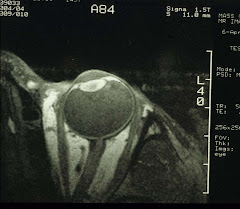 Aji-no-moto, the "essence of flavor", commonly known as MSG (monosodium glutamate), has been a fixture in kitchens of all sizes, all over Asia, since 1909. A few grains of the chemical turns "clear water into chicken soup" as the advertisement goes. And in fact, no ill physical effects have been noted until 1968, when reports surfaced in the US about physical discomfort suffered by some, after consuming Chinese food. Despite conflicting data from several studies later on, the label of "Chinese Restaurant Syndrome" stuck. To this day, in American culture, any discomfort, including postprandial stupor, from eating out, is automatically attributed to CRS. And restaurants began to offer MSG-free meals since that time, even though the replacement, the soup stock, is quite rich in MSG.
Aji-no-moto, the "essence of flavor", commonly known as MSG (monosodium glutamate), has been a fixture in kitchens of all sizes, all over Asia, since 1909. A few grains of the chemical turns "clear water into chicken soup" as the advertisement goes. And in fact, no ill physical effects have been noted until 1968, when reports surfaced in the US about physical discomfort suffered by some, after consuming Chinese food. Despite conflicting data from several studies later on, the label of "Chinese Restaurant Syndrome" stuck. To this day, in American culture, any discomfort, including postprandial stupor, from eating out, is automatically attributed to CRS. And restaurants began to offer MSG-free meals since that time, even though the replacement, the soup stock, is quite rich in MSG.Generally, the symptoms are mild that include transient headaches, flushing and sweating. It is unknown if some patients are ultra-sensitive to even a small dose of MSG; although it does not make sense why any reasonable immune system should attack glutamic acid, which is actually one of the 20+ essential amino acids, the building blocks of protein - unless it is something neurological as some have noticed later (see below). In any case, a normal dose of vitamin B6 seems effective in preventing or staving off CRS.
What's MSG, or more accurately, glutamic acid, got to do with the eye? Let's make a long story suitably short:
Glutamate is actually a major excitatory neurotransmitter in the brain. It is involved in the very complex behavior of NMDA (N-Methyl-D-Aspartate) glutamate receptors. It turns out that excessive glutamate can damage these receptors. In fact, excitotoxicity due to glutamic acid has been proposed to be the cause of neuron destruction in patients with strokes (and other forms of brain ischemia).
Maybe this toxicity can explain the CRS? No, not really, because there is a blood-brain barrier, aji-no-moto cannot enter the brain without invitation/breach. The source of the endogenous glutamate is the injured local cells, causing excessive neuronal excitation of their neighbors, hence the increasing tissue damage. The real culprit of CRS still remains unknown; although it is most likely not dietary MSG.
But wait, since someone has mentioned ischemia and the retina is part of the central nervous system, i.e., the brain, doesn't it make sense that glaucoma/diabetes related damages to the retina also can be blamed on glutamate excitotoxicity? Maybe so. And a lot of research projects are examining all facets of this issue. Already neuro-protection is a topic of major interest in the management of POAG. For example, drugs for treating Parkinson's disease are being used/tested in a number of advanced cases.
On the other hand, it is also very important to realize that as part of the blood-brain barrier, there is the blood-ocular barrier, which prevents the entry of exogenous glutamate (e.g., MSG in Chinese food) into the retina. And even in the lab, an extremely high concentration of glutamate is needed to produce direct cellular damages to the retina. Again, we can rule out dietary MSG in all ischemia-related retinopathies.
Often in the lay press, a few keywords are lumped together to create a seemingly scientific report. In the above case, putting MSG and neurotoxicity together in an uncritically written article can lead the reader to erroneously conclude that "eating out at a Chinese restaurant can damage your brain/retina". On the other hand, without the press coverage and the ensuing publicity, research on glutamate and its excitotoxicity would not have advanced so far. Ultimately, the patients benefit, so the system does work despite its many flaws. Readers must still exercise their own judgment, of course.











No comments:
Post a Comment